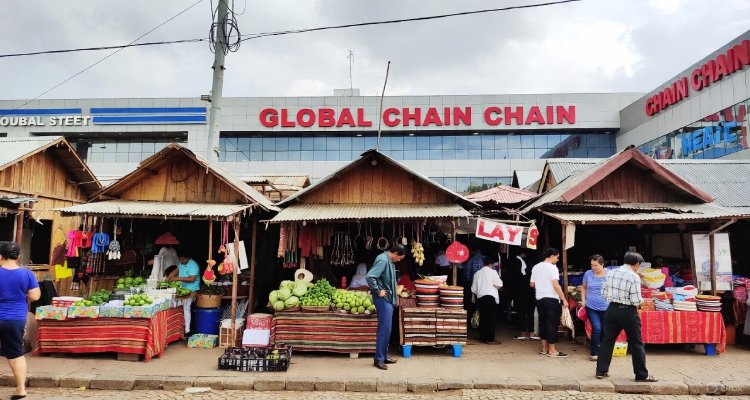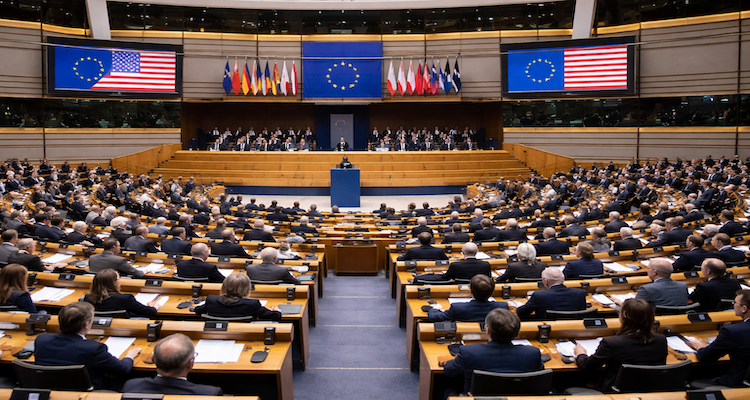How Globalization Erased Local Souls

A deep dive into how globalization reshaped cultures, diluted identities, and transformed local traditions—revealing what communities gained and what they lost.
Introduction: When the World Became One, Something Went Missing
On a humid afternoon in Chiang Mai, a street vendor flips through her phone, scrolling past videos of food influencers recreating dishes she learned from her grandmother. Tourists line up—not for her traditional noodle soup—but for the globally beloved iced latte from a chain café across the street. She watches quietly, not with resentment, but with a growing sense that something intimate and irreplaceable is slipping away.
This scene isn’t unique. It plays out in markets, neighborhoods, and cities around the world. As globalization connected us more than ever before, it also blurred the distinctions that once gave communities their unique cultural “souls.”
Context & Background: The Promise and Paradox of a Connected World
Globalization began as an economic dream—open borders, shared technologies, free-flowing trade. It quickly expanded into a cultural force. The world adopted universal systems: fast fashion, fast food, global brands, and global entertainment.
In theory, the exchange of ideas was meant to expand horizons, not narrow identities. But by the mid-2000s, researchers and sociologists were already warning that local traditions were disappearing at an unprecedented rate. Languages with fewer than 10,000 speakers were projected to go extinct within a generation. Handmade crafts were replaced by factory-made replicas. Old recipes were simplified for mass kitchens and global taste buds.
Communities embraced global convenience—but often at the cost of their distinct cultural fingerprints.
Main Developments: What Happened, Why It Matters, and What We Lost
The Rise of Global Brands Over Local Businesses
From Delhi to Dakar, multinational chains replaced centuries-old shops. Standardized products promised reliability, but they also displaced neighborhood artisans and regional specialties. A once-vibrant economic ecosystem became homogenized.
Cultural Aesthetics Flattened into Trends
Traditional clothing was replaced by global fast fashion. Hand-dyed patterns, regional weaving styles, and indigenous motifs became “seasonal trends” produced in bulk without their cultural roots.
Languages and Dialects Faded
English became the default for global commerce. Younger generations preferred it for education and online presence, leaving regional dialects weakened. With every lost language came the loss of unique metaphors, folklore, and ways of seeing the world.
Food Lost Its Story
Global food delivery apps pushed standardized menus. Many ancient recipes—slow-cooked, seasonal, and deeply tied to geography—lost out to items designed for convenience and mass consumption. “Authenticity” became a marketing term more than a lived reality.
Festivals Became Commercial Events
Local festivals once rooted in agriculture, spirituality, or regional history were transformed into globalized spectacles. Traditions diluted; tourism amplified.
Expert Insight & Public Reaction
Cultural anthropologist Dr. Lina Moretti notes,
“Globalization didn’t erase cultures intentionally. It simply rewarded what scaled quickly—convenience, speed, universality. Local identity was never designed for mass production.”
Economist Rafael Morelos adds:
“Communities didn’t notice the disappearance because it happened slowly. By the time people realized, their everyday surroundings had already changed permanently.”
But pushback is growing. Around the world, youth-led initiatives are reviving forgotten crafts, rediscovering indigenous farming, and promoting regional languages. Digital platforms—ironically the same forces that globalized the world—are now used to preserve local identity.
Still, public sentiment remains divided. Many appreciate the comfort of global sameness. Others mourn what they call “the silent death of the familiar.”
Impact & Implications: The Future of Culture in a Borderless World
A Cultural Identity Crisis
Globalization has given us connection—but also confusion. Communities are grappling with questions:
Who are we without our traditions?
What does it mean to belong?
How much of our heritage should we protect?
Generational Gaps
Older generations worry that local culture is becoming “museum material.” Younger people often live between two worlds: a global digital identity and a local ancestral one.
Economic Vulnerabilities
When communities lose local industries—crafts, foods, textiles—they lose not only identity but income. Global supply chains can collapse, but local knowledge, once lost, rarely returns.
A Slow Movement Backwards—Or Forward?
There’s a global resurgence in “re-localization”:
- Farm-to-table foods
- Handmade crafts
- Community markets
- Regional storytelling
- Tourism centered on authenticity rather than replication
But experts warn that while revival is possible, restoration is difficult. Cultures don’t bounce back the way economies do.
Conclusion: Rediscovering the Local Soul Before It’s Too Late
Globalization gave us access, opportunity, and interconnectedness. But in the process, the world traded uniqueness for uniformity. The challenge now is not to reverse globalization—an impossible task—but to humanize it.
Communities are beginning to realize that progress doesn’t have to erase the past. The soul of a culture lives in its stories, languages, foods, rituals, and people. And as the world continues to merge into one global marketplace, the real responsibility lies in ensuring that local souls do not disappear in the process.
The question isn’t whether globalization erased local souls.
It’s whether we can restore them before they fade entirely.
Disclaimer :This article is for informational and educational purposes only. It reflects analysis, reporting, and research-based insights. It does not provide legal, financial, or commercial advice.










